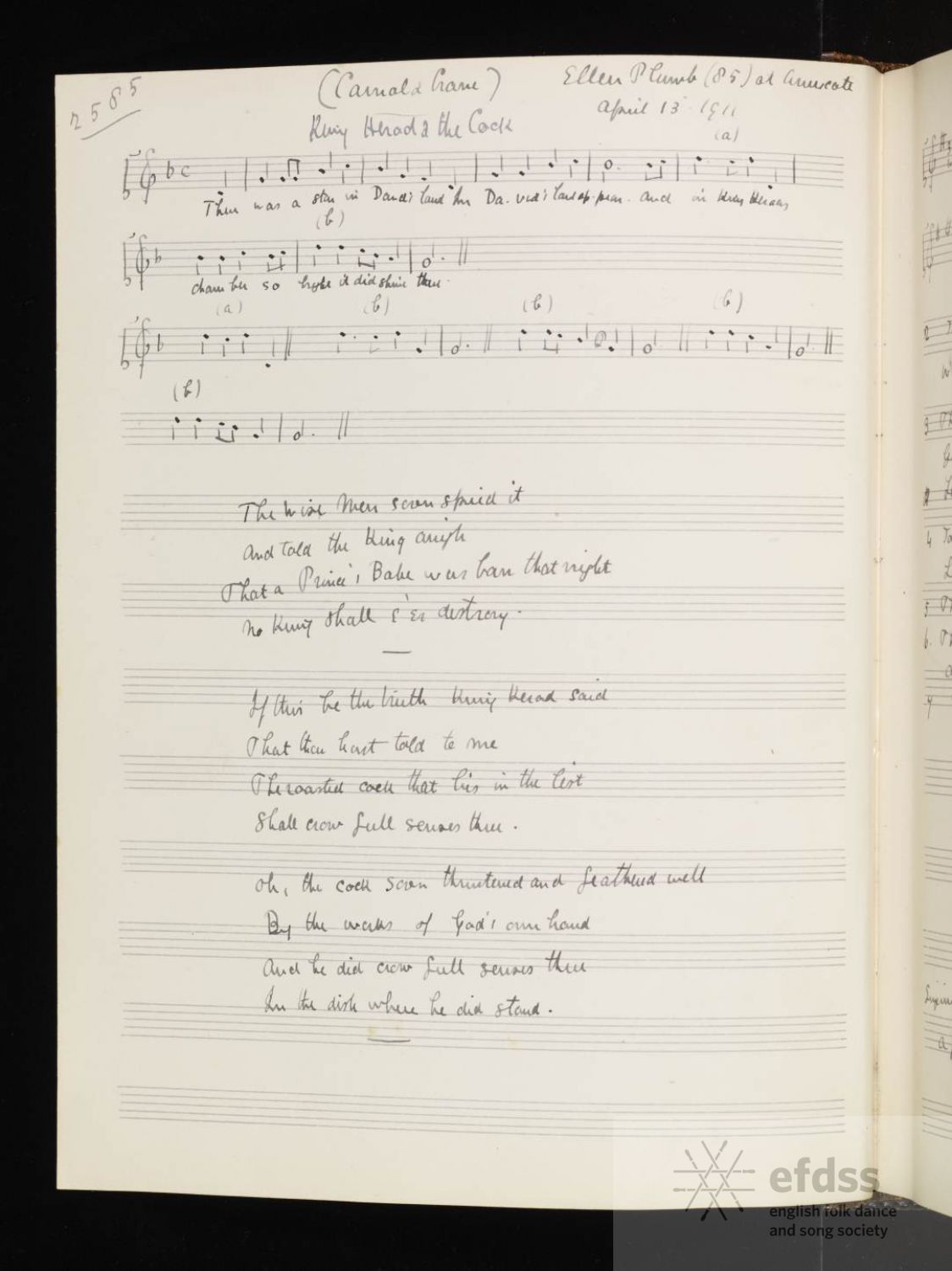We’re only a few days into the 12 days of Christmas, and the Kings supposedly arrive at the end of that period, so I’m a little premature in posting this carol.
It’s not a song that has ever really been part of my repertoire in any meaningful sense, but it’s very short, and at some point over the last 45 years I seem to have absorbed the words. I first heard it on the Watersons’ Frost and Fire, subsequently finding the words in the Oxford Book of Carols. We recorded it with Magpie Lane back in 1995, on our Wassail album. Tom Bower sang the carol, and arranged it – an arrangement which included Paul Sartin’s oboe on the instrumental.
In this form, it has been collected only once – Cecil Sharp took it down from the 85 year old Mrs Ellen Plumb at Armscote in Warwickshire in April 1911.
However the same story crops up in ‘King Pharim’, and it was originally part of a much longer song – a Child ballad no less – called ‘The Carnal and the Crane’. Here’s Sharp’s notes on the song from his English Folk Carols, published in 1911.
The words in the text are given exactly as Mrs. Plumb sang them. I have collected no variants. The tune is a form of the well known ” Dives and Lazarus” air (see “Come all you worthy Christian Men,” Folk-Songs from Somerset, No. 88).
Mrs. Plumb’s lines, although they tell a complete story, are but a fragment of a very much longer carol, consisting of thirty stanzas, called “The Carnal and the Crane,” printed in Sandys’s Christmas Carols, Husk’s Songs 0f the Nativity, and elsewhere. For traditional versions with tunes, see Miss Broadwood’s English Traditional Songs and Carols, and The Folk-Song Society’s Journal (I, 183 and IV, 22 with notes).
In this latter carol the Crane instructs the Carnal (i.e. the Crow) in the facts of the Nativity, of the truth of which the two miracles of the Cock and the Miraculous Harvest are cited as evidence.
I am unable to offer any explanation of the meaning of the word “senses,” which occurs in the last two stanzas of the text. In the printed copies it is given as “fences” – evidently a confusion has somewhere arisen between the letter “s,” in its old fashioned form, and “f.” “Thrustened ” = “crowed”; it is evidently a derivative of t he Mid. Eng. thrusch which meant a chirper or twitterer.
The origin of the carol, and of the legends associated with it, is exhaustively analysed in Child’s Ballads, to which the reader is referred. The conversion of King Herod to a belief in the power of the new-born Christ in the way narrated in the text is an early legend, and one that is widely distributed, traces of it being found in the Scandinavian countries and other parts of Europe. It is not, I believe, mentioned in any of the Apocryphal Gospels, although the second miracle in the carol, the Miraculous Harvest, can be traced to that source.
The story of a roasted cock getting up and crowing was originally associated with St. Stephen. In the Journal of the Folk Song Society Vol. 4, No. 14, discussing ‘The Carnal and the Crane’ in the article Carols from Herefordshire, Lucy Broadwood refers to
the legend of the conversion of King Herod to the belief that Christ is born, by means of St. Stephen, who causes a roasted cock to rise in the dish and cry “Christus natus est!”
If you look at the VWML Digital Archive you’ll see that James Madison Carpenter also collected a Scottish version of Roud 306, although to my uninformed eyes there’s actually precious little to link the two verses of ‘Lood crew the cock’ with this carol.
King Herod and the Cock
Andy Turner: vocal, C/G anglo-concertina


Leave a comment